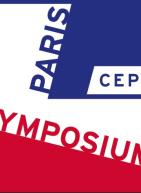On 13 May 2024, 05:00 PM - 06:00 PM CEST, via Zoom, the SAFE Policy Center and the Centre for Economic Policy Research (CEPR) Research and Policy Network on European Financial Architecture organised a web seminar on
Capital Markets Union at 10: How can the EU unlock the full potential of financial markets?
With Nicolas Véron (Bruegel and Peterson Institute for International Economics) and Tobias Tröger (Goethe University, SAFE and CEPR)
Moderated by Loriana Pelizzon (Goethe University, SAFE and CEPR)
Ten years after the project of a European Capital Markets Union (CMU) was first announced, the picture looks dire: Despite incremental progress in some areas (e.g. the European Single Access Point or the Listing Act), financial markets remain largely fragmented along national borders. Lately, rhetorical support from policymakers and geopolitical uncertainties have created a renewed sense of urgency to progress towards CMU, e.g. to reduce dependence on external funding and to strengthen Europe’s position as a cohesive economic bloc.
In a recent SAFE White Paper, Tobias Tröger outlines the need for a level playing field with a single rulebook for financial markets yet cautions against a sole focus on supra-national institution-building without a clear commitment by member states to relinquish sovereign powers. In the past, national actors have successfully lobbied for protection from competition and the transfer of power, thereby hindering market integration. Challenging entrenched national interests, both public and private, takes precedent over finding the best regulatory regime for CMU.
Nicolas Véron, meanwhile, proposes to empower the European Securities and Markets Authorities (ESMA) by providing them with full supervisory and regulatory authority. Learning from the experiences of the Single Supervisory Mechanism, the Single Resolution Board, and, lastly, the Anti-Money Laundering Authority, “ESMA 2.0” should be granted a direct supervisory mandate over financial market infrastructures and be empowered in key areas of enforcement of reporting requirements where cross-border consistency is needed.
The discussion with Nicolas Véron, Tobias Tröger, and Loriana Pelizzon was followed by a Q&A session with the audience.


